United Kingdom. Prime Minister Keir Starmer speaks to members of the media on his way to Washington D.C in September 2024 © Simon Dawson / No 10 Downing Street
“Doubt is not a pleasant condition,” wrote Voltaire (real name: François-Marie Arouet), the 18th century French writer and philosopher, “but certainty is absurd.” Very true. The other day, talking to me about British politics, a friend who has been a lifelong Socialist and therefore a UK Labour Party voter, swore he could never vote for Britain’s current Prime Minister, Sir Kier Starmer, the supposed leader of the country’s Socialists, ever again. “Why not?” I asked. “Because he’s a liar,” came the unexpectedly swift and stern response. Yes, a life-long British Socialist was being very rude about that party’s leader and saying he could never vote for him. That’s not to say he’d vote for anyone else I should point out. He hadn’t turned into a Conservative and nor would he ever do so, (and he would certainly never vote for Nigel Farage’s Reform party) but he’d certainly had a bellyful of Starmer. Starmer has also (somewhat unfairly, I think) come under attack from the American billionaire Elon Musk, who has been using his website to flag up tales of sexual abuse by the Labour Party in Britain, although he can’t really be blaming Starmer for all of them, can he? In any case, Musk, as a flag carrier for Donald Trump and with his far-right views is unlikely ever to pay compliments to a Socialist party in any country. His viewpoint would hardly be neutral, sexual tastes aside. I know some of my fellow countrymen (and women) have bizarre erotic fantasies, (so I’ve read) but they can’t all be Starmer’s fault, surely? He never struck me as the sort of man about whom women fantasise while dreaming of sexual dalliances, or certainly not frequently.
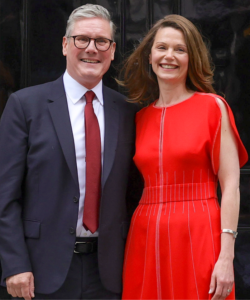
Whatever the truth of it all, it’s not doing Britain’s Labour Party much good. Clement Attlee, Barbara Castle and the pipe-smoking Harold Wilson would be horrified. None of them could be described as “sex symbols”. Indeed, I cannot think of a single politician of any party who might be described that way. I cannot personally testify to Starmer’s reliability or otherwise; I have personally had no experience of chatting with the man, nor or of his alleged propensity for stretching the truth beyond breaking point; my days of chatting casually with party leaders belong in the past, so whatever he told me could be truth, could be lies; I would not necessarily know the difference. Of course, truth and politics have not been close friends for years. “In politics, the truth is strictly optional,” wrote Thomas Sowell, the American economist, economic historian, social philosopher and political commentator, “and that also seems to be true in parts of the media.” Yes, we journalists are not known for always being truthful. The American Humourist Will Rogers wrote: “If you ever injected truth into politics, you have no politics.” Very true, if rather depressing. Of course, it could be argued that if somebody offers you something for free out of their generosity, it would be rude to reject it. On the other hand, how many times have you been offered expensive freebies? No, neither have I.
In the case of Britain’s Prime Minister and his wife, the generosity of others seems to have been welcomed. While he was still leader of the opposition, before taking up his country’s leadership, Starmer accepted around £16,000 (almost €19,000) for clothes, £2,485 (over €2,941) for glasses and, in addition, accommodation valued at £20,000 (€23,675.67) so that his son could revise for the exams he had to pass to get into a good university while the media were camped outside his parents’ home, keeping watch.
Most of this generosity was provided by Lord Alli, a television executive, whose kindness didn’t end there. It was all declared for the private office of the Labour opposition leader. Starmer’s wife has also admitted to accepting clothes as “donations”. Alli was recognised for his “kindness” once Starmer became Prime Minister with a temporary “free pass” to his Downing Street office. Starmer has also accepted a vast quantity of free football and concert tickets during his time in opposition.
Lord Alli is a very valuable friend to have for an up-and-coming political leader. A very kind and generous one, too, it seems. It all looks very strange and would appear to have very little to do with politics at all. But, of course, it has; everything has.

Certainly, the Labour Party has been losing support since it was elected to office. That’s not unusual; it happens after every election. Nigel Farage’s far-right “Reform” party claims it’s benefiting from these changes of allegiance, but that’s not certain. There are signs that voters may be turning left, rather than right, despite a great deal of criticism over Rachel Reeves’ handling of the economy (among several other things), with a surprisingly large number turning to the Greens and Liberal Democrats, despite the fact that Reform draws more votes than the Conservative Party, once thought of as the “natural” party of government, according to a survey of voters’ intentions by YouGov.
But this is just one of a great many concerns about the Labour government that will be giving Sir Keir sleepless nights. Take the case of Gerry Adams, for instance, and the fact that this unrepentant Irish terrorist may be in-line for cash compensation over his internment. It was the former Conservative government that passed “Troubles Legacy Act” which would entitle Adams to claim financial compensation for his internment behind bars. The current Conservative leader, Kemi Badenoch, has described the idea as “shameful”, even though it was introduced by the Conservatives. Starmer has described the act as “unfit” and “unlawful” and he told the House of Commons that he would block any payment to Adams. Northern Ireland’s terrorists have lot to answer for. When I was reporting from a poor part of Belfast a good few years ago, I commented on the strong wire netting suspended over the small and rather sparse garden. It was explained to me as being necessary to save any children playing out there from the petrol bombs – sometimes known as “Molotov cocktails” – that were frequently thrown over the wall. It’s hard to see how such actions advanced the cause of Irish nationalism but even harder to see how one of those supporting and even organising such acts should now be getting cash to compensate them for the periods they spent in internment for their indisputably illegal activities. Talking about Adams’ possible compensation, Starmer told the media: “We will look at every conceivable way to prevent these types of cases from claiming damages”. Good luck with that, especially when it will mean voting with the Conservatives when they attempt to rescind the law they created.
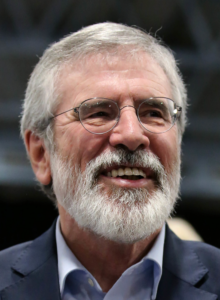
Other violent criminal acts seem to attract more public (and media) attention, such as the organised gang rapes of very young girls in the north of England. Research suggests that more than 1,400 girls, some of them as young as 11, were sexually exploited in the northern English town of Rotherham (and in other northern towns) between 1997 and 2013, a fact drawn to public attention by the American right-wing billionaire Elon Musk, using his website. Many of the girls were already known to the authorities because they had been victims of parental neglect or had even been in care. It’s thought that many – perhaps most – of the perpetrators were of Pakistani heritage and many of the girls suffered multiple rapes. Local officials are said to have regarded the rapes as examples of “consensual sexual intercourse”, although most of the girls in question were too young to have consented to having sex at all, assuming they even knew what was happening. It seems that the local authorities were wary of identifying the ethnic origins of the supposed perpetrators because they were afraid of upsetting the cohesion of the community or of being accused of racism themselves. The police and local authorities said they had not found signs of a cover-up, but then they do not seem to have been looking for one. It’s not the first such case. A nationwide public inquiry into child sexual abuse, involving churches and schools, published a report in 2022 making a number of recommendations, none of which had been implemented at the time of writing. Why should this concern Sir Keir (other than because of the horror such cases inevitably and rightly) raise? Well, he was Director of Public Prosecutions between 2008 and 2013 and claims that during that period he tackled the issue “head-on”, bringing the first large-scale prosecution of a gang accused of grooming young girls and gang-raping them. The Conservative party and Nigel Farage’s far-right Reform party have both called for wide-reaching public inquiries into the whole issue.
Sir Keir has been unfortunate with the unwelcome resignations of some of his chosen ministers, too.

Take Tulip Siddiq, his treasury minister (among a range of other titles), for instance. She assured the media that she had never breached the ministerial code in her role as Sir Keir’s “Ethics Tsar” (actually Economic Secretary to the Treasury) but that her continued presence in government “is likely to be a distraction”. So rather than risk that, she has resigned the post. Siddiq, as the Minister responsible for financial services and for the fight against corruption has also been questioned about her financial ties to her aunt, Sheikh Hasina, who finally resigned as leader of Bangladesh amidst allegations of corruption. Tulip Siddiq had repeatedly denied any wrongdoing while serving under Sir Keir Starmer, and Prime Minister he had said he had full confidence in her.
So rather than risk that, she has resigned the post.
That same willingness to step aside is not visible in Rachel Reeves, who has apparently shrugged off demands that she should resign and is still talking up her recent visit to China, arguing that her plans for the economy will deliver untold benefits. She has denied having “improper relationships” with foreign politicians and has also insisted that she always acted correctly with regard to the many properties she has owned or lived in. “My loyalty is and always will be to this Labour government,” she assured colleagues, but she still feared that her record could embarrass Sir Keir, although she sternly defended her recent visit to China.
Most of the problems facing the Labour Party are of its own making. Take the winter fuel payment debacle, for instance. The payments have been cut for any pensioners not also receiving benefits and in future will be restricted to those on pension credits or other means-tested benefits. You have to prove you really need it before you can get it and even if you can it’s still not a done deal.
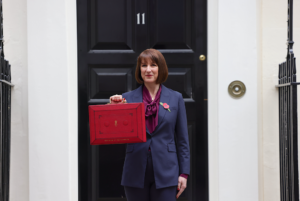
After all, Chancellor Rachel Reeves has sought ways to cut government spending in many areas, blaming an overspend of £22-billion (€26-billion) inherited from the previous Conservative government. She has said that she’s quite happy to be labelled “the Iron Chancellor”, although historically that was the nickname given to Otto von Bismarck (1815‑1898) who became chancellor of the newly-united German Empire from 1862 to 1890. It’s not a name I would like, but Ms. Reeves can choose it if she wishes. I’m not sure if the traditional spiked helmet would suit her, however.
Climate change is another hot issue. By a strange coincidence, former Conservative Prime Minister (very briefly) Liz Truss seemed to back the leader of the far-right Reform party, Nigel Farage, in joining a group that apparently doesn’t believe climate change is happening. They made the announcement in the same week that the UK-based scientific magazine New Scientist ran a lead story on why climate change is happening and how it breaches the threshold set under the Paris agreement. In fact, Berkeley Earth, a climate research group based in California, reckons the rise reached 1.62℃.
Truss became the shortest-serving prime minister in British history, serving only from September to October 2022. There was a running joke in Britain that a lettuce bought in a supermarket would have lasted longer. She lost her seat to Labour in the last General Election. Starmer’s Labour government had promised swift action to counter climate change, but most concerned environmentalists are somewhat disappointed, it seems. It’s a difficult area and views are very divided. A recent poll conducted by the political organisation “More in Common” suggests that climate change is a top priority for many people, with “climate change and the environment” ranking together as the “third most important issue facing the country”, behind only the tracking of Covid-19’s spread and support for the National Health Service.
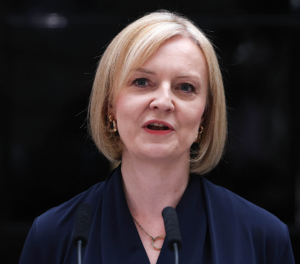
The research body concluded that 79% of British people are concerned about the environment and three quarters of the people worry about climate change. More worrying for Labour, perhaps, is that 60% don’t think they’re doing enough about it.
According to scientists, 2024 was the hottest year in human history, reaching higher than 1.5° Celsius above pre-industrial levels. It’s harder to convince British people, however, because it was an awful summer here, but the British Met Office nevertheless estimated that the temperature had risen by 1.53°C. Despite that, on most days it was too cold or wet to sit in the garden. Perhaps I should also say the year was the hottest in “recorded human history”; we don’t know for sure what the Neanderthals and Denisovans, among others, had to put up with. Sabre-toothed tigers (smilodons), mammoths and an ice age would seem more than enough for most people. However, sea temperatures have risen world-wide, although it’s hard to see how that could be Starmer’s fault. Most climate scientists now reckon that the 1.5°C Paris target is no longer reachable, no matter who runs the country. So, Truss and Farage don’t believe it’s happening, but the scientists say it is. Believe who you like, but my money is on the scientists. What’s more, recent polling by the organisation More in Common suggests that tackling climate change is seen by most people as a top priority for the majority of people in Britain.
However, while most British people express their deep concern over climate change (four out of five of them or 83%), only a small percentage feel they should do anything themselves that might affect their lifestyle choices. This “action gap”, as it’s called, suggests that while they talk about taking action, not many people actually do. There are reasons, of course; take the issue of electric cars, which are not proving as popular as many experts hoped, partly because they’re expensive, partly because of concerns over their reliability but perhaps mostly because of a lack of easy-to-reach charging points. Traditionalists and committed Conservatives are especially unlikely to invest. Once again, that is not the fault of Starmer, nor of his team.
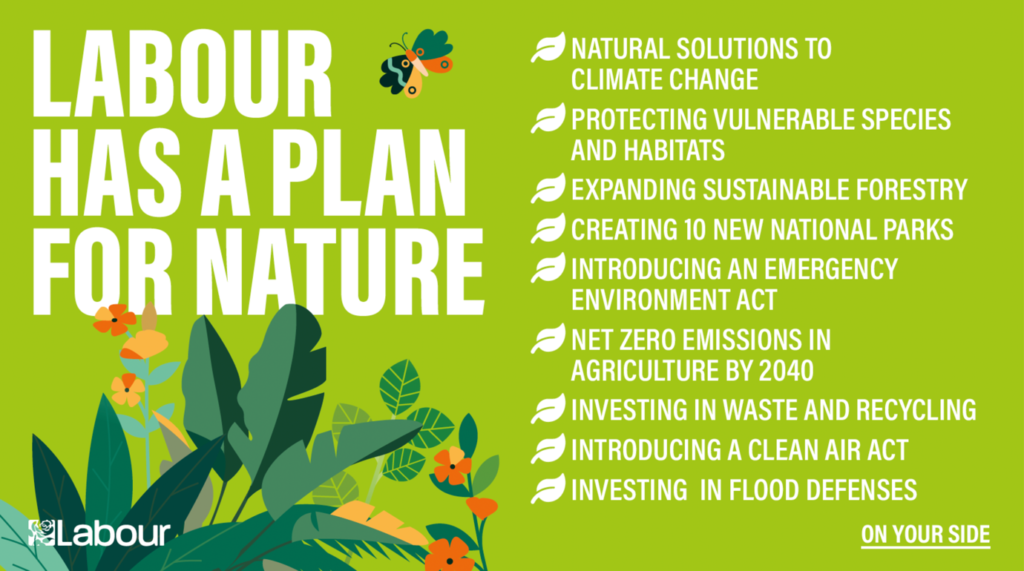
Starmer admits that there is a “climate and nature bill hole in Labour’s manifesto.” Yes, Labour has said it will expand nature-rich habitats like wetlands and forests and plant million of trees, also introduce a pledge to help with cleaner air, banning fracking and increasing the tax on the oil and gas giants, including a ban on generous bonuses for the bosses. However, Labour made no promises to revoke existing oil or gas licences, nor to end fossil fuel subsidies. More action in this area would clearly be popular with most of the public. As the Big Issue magazine pointed out, an intention by the Conservatives and Scottish Nationalists to make this the deciding factor for voters clearly isn’t working. Persuading people to eat less meat apparently is. It seems that some 60% of British citizens are either not eating meat all or are eating less of it. Big Issue points out that the Labour manifesto should have made a promise to involve the people more seriously in decisions affecting the environment and the use of polluting fuels. A group of 408 scientists have published an open letter to Labour warning that “any leader who doesn’t make stronger climate action a priority will place at risk the prosperity and well-being of the British people.”
All in all, it leaves you wondering: “who would want to run a country?”. Let’s take a quick look at the issues: the existence of “grooming gangs” that rape underage girls, the issue of generous gifts of clothing and tickets to key events, for the leader and his wife, the resignations of key members of the team, the tightening of the screws on pensioners and others dependent on benefits, the removal of winter fuel payments, the problems with the health service, the unfulfilled promises about tackling climate change…the list goes on. Can Sir Keir recover from his perilous position? Probably yes, is the answer.
| THE CHAGOS ISSUE

Keir Starmer’s choice to relinquish sovereignty of the Chagos Islands to Mauritius, while maintaining a long-term lease on the Diego Garcia military post, has generated tensions between the United States and the United Kingdom. Concerns focus on the geopolitical ramifications for the US-UK alliance and the possibility of heightened Chinese influence in the region. The situation is dynamic, with continuous negotiations and the need for coordination with the forthcoming U.S. administration.
The public remember the last Conservative government, and not with affection. According to Luke Tryl of Labour List, “What Starmer’s biggest achievement is likely to have been is making Labour feel like a safe choice again.” Of course , that was before people started looking at all the new clothes and other generous gifts Sir Keir and his wife have received. Seeing that, some people are beginning to wonder if he’s really a Socialist at all. Indeed, immediately following Starmer’s massive election win, Luke Tryl warned of a danger that the result masks a deeper discontent with the whole of the political system, “not just a problem with one political party.”
Institute for Government, a political think tank, fears an unpredictable future for Britain” “Many of the key protagonists have stepped onto or left the main stage – we have the first Labour government in 14 years, a new leader of the opposition, a House of Commons in which over half of MPs are new, the Liberal Democrats are resurgent and a plurality of minor parties have greater voice, a new cabinet secretary, a new EU Commission and a new, albeit familiar, US president.” Isn’t life fun? The Institute has undertaken more recent polling with Deltapoll since Labour’s landslide win, and the outcome will make for uneasy reading for Starmer: “just over a fifth of people think that this government is being effective at improving their lives (22%) compared to 28% who now think the last Conservative government, which voters have just ejected, was effective.” Well, as the old saying goes, you can’t please everybody. Still, with possibly four years before the next general election, it could be worse.

“We are pleased that Starmer has adopted some of our recommendations, strengthening Pat McFadden’s role as chancellor of the Duchy of Lancaster to focus on delivering the government’s priorities, making use of a smaller subcommittee of cabinet to make more focused decisions, and producing a set of priorities early in his term to focus the government’s activities – in the form of the ‘Plan for Change’.” Even so, Starmer could have had a smoother start to his premiership and he could have prevented his supporters from showing so much generosity. As it is, the electorate is left uncertain about his real beliefs and those of his team. Popular praise for Nigel Farage is generally of the “he tells it like it is” variety, but a far greater number have no time for him or his party. Sir Keir Starmer’s time in office is likely to be judged according to how well he gets hospital waiting lists down, whether he makes home buying easier and how well public transport works, among other things. The signs are fairly promising but he still has a lot of work to do. “A landslide masks discontent left, right and centre,” wrote Luke Tryl of Labour List, “Labour has its work cut out.” Whether or not it seriously addresses and deals with that work is something that only time will tell.
T.Kingsley.Brooks@europe-diplomatic.eu

